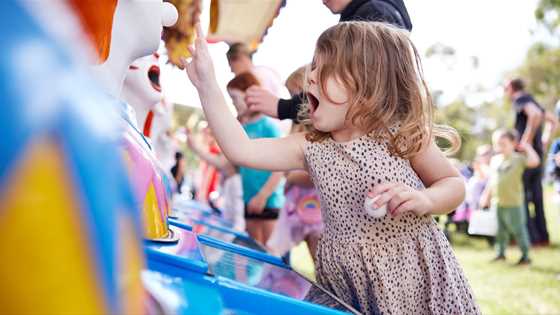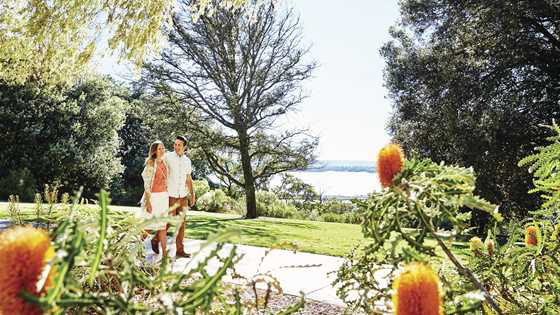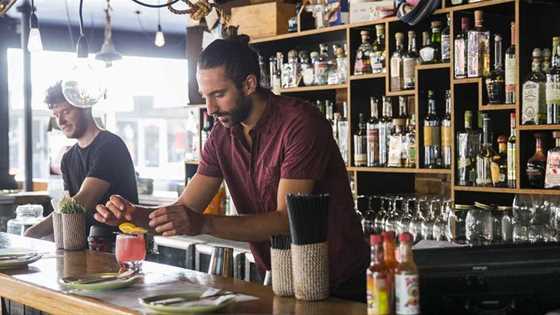Humble and hard-working, these community workers are driven by a commitment to justice and equality.
 Craig Comrie
Craig Comrie
Youth Affairs Council of WA
At just 26 years old, Craig was made CEO of YACWA. His mandate? To make young people's voices heard.
For the 2007 launch of Home Is Where My Heart Is, an initiative that pairs homeless young people with established local photographers to tell their stories through pictures, Craig Comrie and his crew guessed 30 people would be attending. They were a little off.
"Three hundred people showed up," he says with a grin. Now he estimates 50 people have been mentored through the program, which is run by Youth Affairs Council of WA (YACWA), while thousands come through the annual exhibition.
Homelessness is an issue deeply important to Craig. "No one should be left behind in an egalitarian country. I've spent most of my life in Western Australia, and I can see how lucky we are here. The fact that we have the second-worst homelessness rate in the country while having the most robust economy – that's a disgrace. For me, that's a really clear demonstration of where we're not doing it right." Young people are disproportionately affected by that gap, he says – they make up 50 per cent of the homeless population, and one in four young people will suffer from a mental health issue.
YACWA tries to raise awareness of that disadvantage, by advocating for policy reform, changing the way people talk about youth issues, and tearing down negative stereotypes. "I hear a lot of things about young homeless people, like, 'They're lazy, they don't want anything better for their lives, it's their fault'," Craig says. "That really angers me. Young people leave home because of abuse, drug and alcohol problems, domestic violence – they leave because they don't feel safe."
Craig says that to change this, we need to listen to young people. "They know a lot," he says, "particularly vulnerable young people who have experienced homelessness or mental health issues – they know about it because they've been through it. We need to be giving more opportunities to young people to have their voices heard."
 Penny Tucker
Penny Tucker
RUAH
For women struggling to rejoin society after time in prison, Penny's Inside-Out program is a lifesaver.
What is it like to leave prison? Most of us will never have to find out. We'll never know what it's like to integrate back into society, or the stigma of being a criminal and the mental strain after being rejected for employment. For women, leaving prison can mean going back to being a full-time mother, dealing with domestic abuse, and relearning how to cope with negative circumstances. This is where RUAH's Inside-Out program comes in.
"That transition can be very stressful for women," says program manager Penny Tucker on why women need help reintegrating into the community after prison. "Sometimes we see when they are released they're straight back into parenting up to seven children."
The program works with women from two different prisons, Bandyup Women's Prison in Perth's Middle Swan region and Boronia Pre-release Centre for Women in Bentley. Each participant is assigned a caseworker and together they create a four-week community plan that is implemented pre-release. The longer-term, post-release plan can run up to 12 months, reviewed every three months to see how the women are coping with the change.
"Programs needs to be gender-specific," says Penny. "Women put themselves before others and are concerned about family. While men are parents, when a woman is released from prison she is straight back to parenting."
Women's incarceration, she explains, traumatises the entire family, even down to its youngest members. "The children also have to go through that experience of the police apprehending their mother, or coming home and their mother isn't there." Children are then typically cared for by their grandmother or by the Department of Child Protection; their mothers must show the required changes to be with their children again.
Finding employment is another huge issue, setting up the framework for a stable living environment. "We have been successfully placing women in jobs post-release, which could be anywhere from cleaning or working in coffee shops to the mining industry," Penny says. "For some with younger children that isn't always easy. For others it may be the first time they have actually had employment."
While there is always a chance of relapse, Penny says it's incredible when someone has the resilience and motivation to change their life. "It may be their first or fourth time in prison, but this time they are determined," she says. "They begin to see that life has ups and downs and they believe they can really get through that. We have seen women completely change their lives around."








